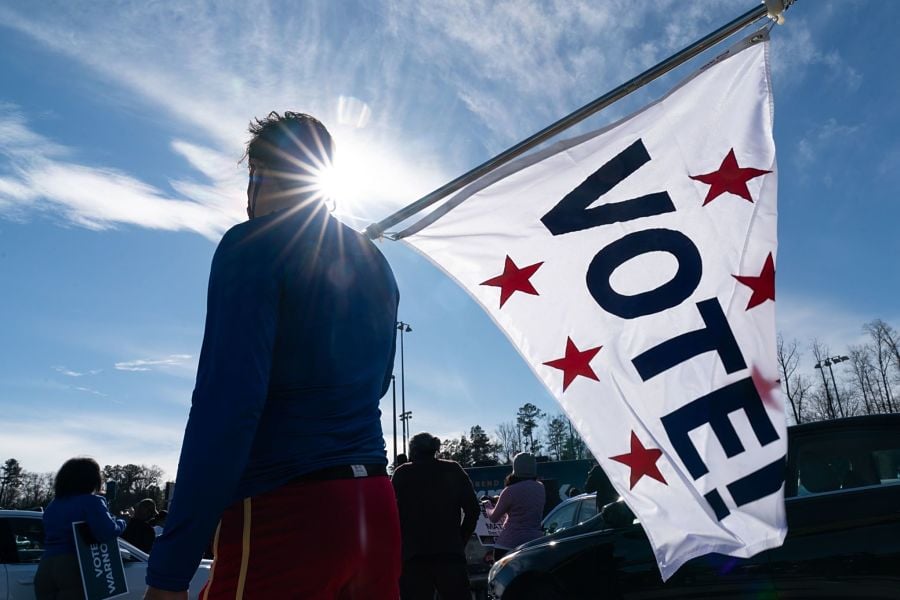

A Kamala Harris victory in November’s US presidential election is seen as better for Treasuries and worse for stocks than a win for Donald Trump, according to a survey of Bloomberg Terminal subscribers.
Half of survey participants plan to increase exposure to equities if Trump wins, whereas only 28% said they would do so if Harris becomes president. More than a third would reduce their stock exposure should Harris prevail. Meanwhile, nearly half of 340 respondents indicated they would reduce bond exposure in the event of a Trump victory. Some 23% said they would do so if Harris wins.
Trump bringing the White House under Republican control could have a bigger impact on financial markets than Harris keeping it in the hands of the Democrats, institutional investors said. About a third of respondents said they would likely hold their equity exposure steady if Harris wins, compared with 24% if Trump does. About half plan to keep their bond stakes the same under Harris, versus 37% under Trump.
MLIV Pulse survey participants, including portfolio managers, traders and economists, clearly see some difference between the candidates. Still, in the survey conducted Sept. 9-13, during the week of the Trump-Harris debate, 54% of respondents said they hadn’t yet positioned for the election, with the balance of those who are positioning evenly split on either side. Most respondents answered the survey after or during the debate.
History shows that equities tend to go up regardless of who sits in the White House. The S&P 500’s average annual price return, in data going back to 1945, has been an 11% gain under Democrats and a 7% advance under Republicans, according to data from Sam Stovall, chief investment strategist at CFRA Research. Only one of the last six presidents, George W. Bush, has seen the S&P 500 fall under his watch — and he left office in the midst of the Great Recession.
Declining inflation and the prospect of the Federal Reserve cutting benchmark interest rates as soon as this week have helped US Treasuries advance in 2024. Bond prices are likely to continue to go up over the next presidential term, according to almost half of Pulse respondents.
While easing monetary policy usually translates into lower yields and rising bond prices, expansive fiscal plans tend to have the opposite effect. Both presidential candidates are expected to increase federal borrowing. Trump’s proposal to permanently extend tax cuts from 2017 could lead to a debt-to-GDP ratio of 142% over the next 10 years — about 20% higher than at the end of World War II — according to Bloomberg Economics.
The overwhelming majority of Bloomberg survey respondents expect the US to avoid a sovereign ratings downgrade under the next president. Such an event has only happened twice so far in US history.
US stocks will outperform their global peers over the next four years, according to about two-thirds of surveyed investors. American exceptionalism in stocks over the last two years has been driven largely by excitement around artificial intelligence—and within the US market, tech mega caps like Nvidia Corp. or Apple Inc. will continue to dominate, investors said.
The MLIV Pulse survey was conducted among Bloomberg Terminal users worldwide who chose to engage with the questionnaire. Terminal readers can sign up for future surveys by typing NSUB PULSE.

Former Northwestern Mutual advisors join firm for independence.

Executives from LPL Financial, Cresset Partners hired for key roles.

Geopolitical tension has been managed well by the markets.

December cut is still a possiblity.

Canada, China among nations to react to president-elect's comments.
Streamline your outreach with Aidentified's AI-driven solutions
This season’s market volatility: Positioning for rate relief, income growth and the AI rebound
